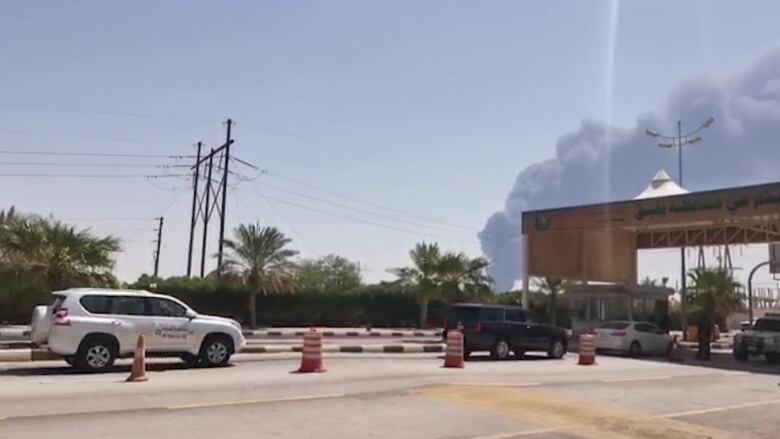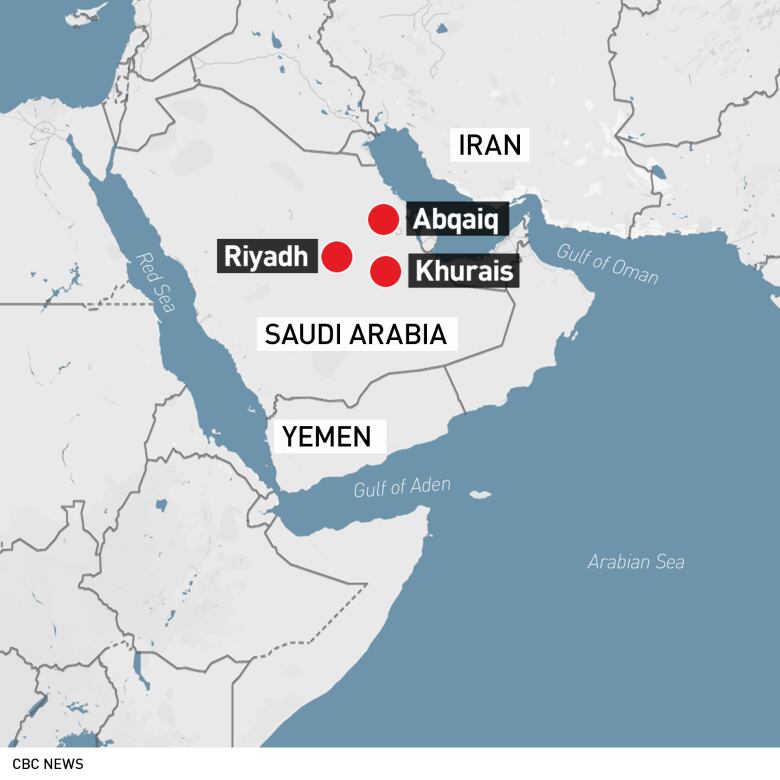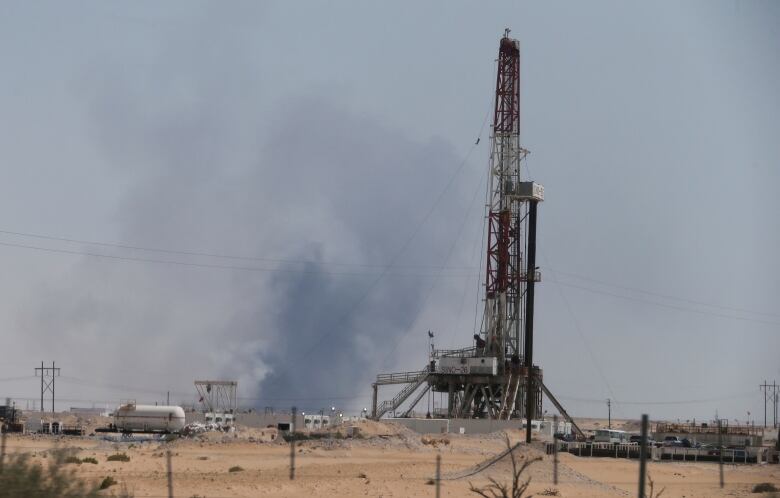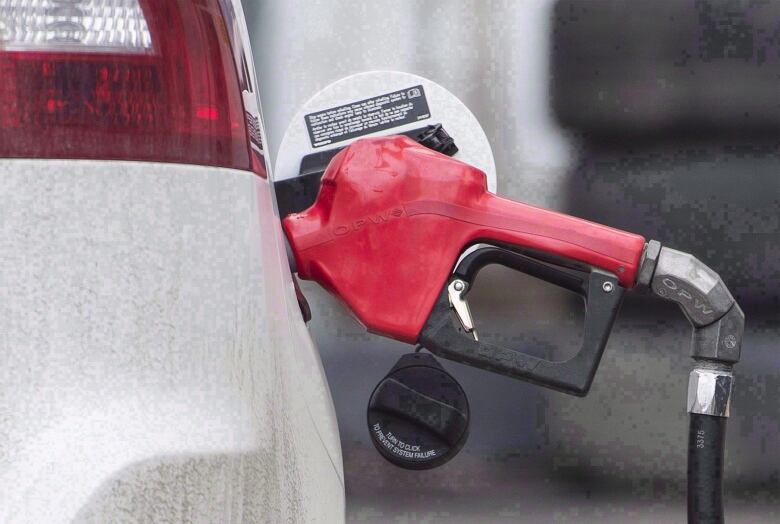What the attack on Saudi oil facilities could mean for Canada's oilpatch and Keystone XL
'The strike on Saudi refineries should be a wake-up call,' Alberta premier says

The secure supply of Canadian oilto the United States could recapturethe attention of American decision-makersfollowing the recent attackon Saudi Arabian oil facilities, experts say.
Industry and government leaders around the world are still assessing the impact of Saturday'sdrone strikes on the state-owned Saudi Aramcofacilities.
The attackdisrupted about five per cent of global crude supplies, sending oil prices soaring.
The news also saw Canadian energy stocks surge by double digits during Monday's trading amid concernsthe impact onoil markets could last months.
Canadian crude overshadowed by soaring U.S.shale oil production in recent yearscouldreceivegreater focus with renewed discussion about secure energysupplies, said Rory Johnston,a commodity economist at Scotiabank.

"Historically, we'veseen more of the sentiment toward the Canadian oil sector as being couched in terms of oil security, which asa concept has kind of fallen by the wayside," Johnston said.
"This will likely raise that energy security narrative back to the forefront of public discussion, which all else equal, should benefit the Canadian oilpatch as a source of secure supply politicallysecure and right next door to the United States."
While Canadian pipeline constraints make it difficult for oil companies to get more Alberta oilto market currently, Johnston said, a shift in the conversationcould fuel further political pressure to build projects likeKeystone XL, which has struggled in the face of legal, environmental and political challenges in the U.S.
"It wouldn't necessarily accelerate the timeline of these types of projects being built," he said.
"I think what this does is just lessensthe risk that we're going to see further delays."
Alberta 'the most secure major source of energy': Kenney
Aberta Premier Jason Kenney, who wasin New York on Monday to meet withinstitutional investors, also emphasizedthe message that Alberta is "the most secure major source of energy" in the world.
"The strike on Saudi refineries should be a wake-up call," heposted tosocial media.
Kenney was also reported Monday to be looking at easing mandatory oil production cuts in Alberta following those attacks.
American interest in secure supplies of oil from Canada was particularly strongafter the terror attacks on Sept. 11, 2001, said Christopher Sands, an expert on energy policy atJohns Hopkins University in Washington, D.C.

That changed during the Obama administration, he said, with greater emphasis on the environment.
Sands said the situation with Saudi Arabia may have Americans looking at Alberta, but it couldunderscore for somelawmakers how important it is Canada build on its own pipeline capacity and ensure securityof its oil.
"You don't have enough capacity, and this makes us think you need redundant capacity because what if something goes wrong?"said Sands, adding that ensuring thesecurity of existing energy infrastructure is key.
Tim McMillan, president of the Canadian Association of Petroleum Producers, said the current situation in Saudi Arabia may provide moreincentive to expedite projects like Keystone XL and Enbridge's Line 3,which would carry more oil from Alberta to the U.S.
But he added that even with President Donald Trump "pushing these projects, it has been a challenge with the U.S. court system and some of the other delay tactics that opponents are using."
Though McMillan said he's confident those projects will be built, he added he was "less confident" that the U.S. legal system will move any faster.
"But why on earth is Canada so beholden to the United States when we have the world's second-largest coastlines, where we have a close connection to the growing markets in Asia?" he added.

While Canadian producersstill facechallenges in getting oil to market, whether by pipeline or by rail,IanNieboer, managing director atRS Energy Group, saidthey should benefit from higher oil prices.
The question everyone is trying to answer, he said, is how long will the situation last.
"The outage itself and its duration is probably the first and most pronounced fundamental impact," he said.
"The longer term and more structural piece is, is theresome sort of risk premium [on oil prices] that maybe enters the market as you think about the politics of the Middle East and now really the circumstances that led to this weekend's attack," Nieboersaid.
As for gasoline prices, Roger McKnight, chief petroleum analyst at En-Pro International, says it likely means higher gasoline prices in Canada as early as Wednesday. He saidit's unclear how long it's going to last.
We have no idea where this thing is going togo because it's completely out of anyone's control.- Roger McKnight, chief petroleum analyst at En-Pro International
"We have no idea where this thing is going togo because it's completely out of anyone's control," McKnight said.
"And the Saudis are going to keep things kind of close to the vest because they don't want to really upset the market completely. But the facts are facts. Five per cent of crude supply goes off the market, and prices have to go up."
With files from Reid Southwick












_(720p).jpg)


 OFFICIAL HD MUSIC VIDEO.jpg)
.jpg)



























































































